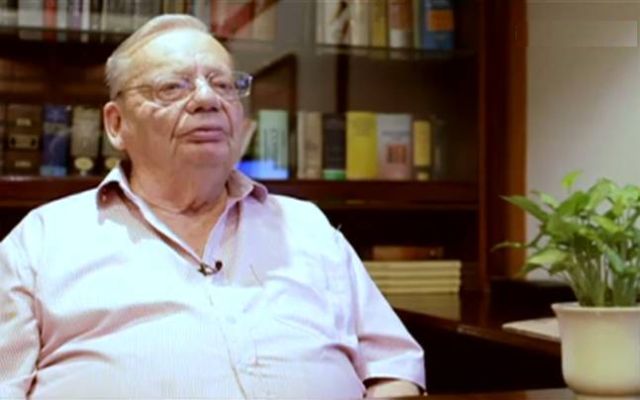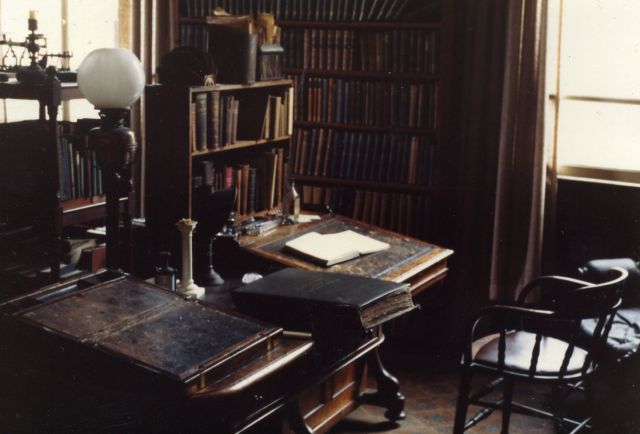
by admin | May 25, 2021 | Interviews

Ruskin Bond
By Sugandha Rawal,
New Delhi : Ruskin Bond feels lucky to live in India. The celebrated author says there is more freedom for writers in India despite various conflicts and occasional turmoil.
“If you think of the world in the present circumstances, how borders change and conflicts are constantly erupting in the world, it is not a peaceful universe as it was before,” Bond told IANS in an email interview when asked about his relationship with the country.
“I find it very lucky to be an Indian and living in India. That is the one reason I am never attracted to going abroad or settling in any other country because in spite of various conflicts and occasional turmoil, compared to other countries, you would find more freedom and topics for a writer in India,” added the author of British descent.
Bond, who was associated with Landmark’s Child Reading to Child initiative for the fourth time this year, continued: “Suppose you were a writer in China and you go and sit to write on Great Wall of China, somebody would come in and take you away…go down the list of various countries, you will find that living in Europe is very dull.”
“If you live in America, you need a gun and I am not very fast with a gun, so I think I would walk out very quickly. So, I think it’s much better here if you compare it to other lands.”
Born in Kasauli in what is now Himachal Pradesh, Bond grew up in Dehradun, New Delhi and Shimla. He then spent four years in London as a young man, only to return to India in 1955. He has been staying at Ivy Cottage in Landour since 1981.
Starting his journey as a writer with his first book at the age of 17, Bond has spent 68 years giving words to his thoughts, creating a collection of over a hundred novellas, short stories, non-fiction and poetry books.
Looking back, Bond said: “I was a bookworm in school and in those days it was easy to get books. Bigger cities had book shops. Also, I had a very lonely childhood so I had turned to books at an early age and they were a great help and by the time I had finished school I had decided that this is what I want to do.”
And he feels he “didn’t do badly”.
“I started wanting to become a well-known writer and today I have lots of readers. It took a long time but it came about. So if you do have a dream, something you want to do very much in your life it will come about if you persist.
“If you keep that vision in mind and the desire within you, you have to work towards it, you just can’t sit back and expect everything to come to you. You have to work towards it as for some people it might come very quickly and for some it may take a lifetime.”
But success can’t come at the cost of quality.
“I see that a lot of people are rushing through. They just want to see their name on the book. The other day, there was a book launch and was self-published by an author and the writer had simple grammatical errors, even the sentences hadn’t been rightly put together. Nobody would ever enjoy reading that book. There was no fluency. So the language is all important to begin with,” said the 84-year-old.
He has spent many years spreading happiness with his stories, and garnered appreciation from all quarters. He is determined to not let age slow him down.
“There will always be books as long as I am mentally capable of it,” said the author, who has been bestowed the Sahitya Akademi Award for English Writing, as well as the Padma Bhushan and the Padma Shri, the country’s third and fourth highest civilian awards.
“I am done and nearly finished with a book on trees, flowers and plants. It’s not a scientific book. I will do another and finish a story of me being a goal keeper. A lot of people think I am a good writer and praise me, but no one praises me for being a goal keeper and in this book I am going to praise myself as a goal keeper. And then what else, I would see how it goes.”
(Sugandha Rawal can be contacted at sugandha.r@ians.in)
—IANS

by admin | May 25, 2021 | Opinions
 (Literary Feature – Part I of II)
(Literary Feature – Part I of II)
By Saket Suman,
Solitude and silence are what most writers seek to produce a full-length novel or non-fiction book. But what do writers do when all around them is chaos and noise? They sit back and build a peaceful environment where their creative juices flow seamlessly.
There is no denying the fact that some of the best novels have been written by writers with few resources at their disposal, often at the early stage of their careers when they struggled to make ends meet. A perfect writing universe, thus, may not be a prerequisite for quality writing. But even then, some writers carefully curate the existing surroundings to suit the mood of their novel.
Consider, for instance, British writer Chris Cleave, whose books are published in 30 languages and have been adapted for screen and stage worldwide. The writer’s highly acclaimed book “Everyone Brave is Forgiven” was written in a corner of the The London Library, surrounded by stacks of books. There was no view but the one that he brought with him. Usually the light from the small window was leaden and the soft buzzing of the electrical transformer box drowned out any distracting background noise.
“The writing desk was steady and just the right age, 50 or 60 years, I should think — so that it offended neither with antiquity nor with recency. Scratched into it were the initials of people I couldn’t guess at. As a place to write, it was neutral. It was notable for not even belonging to me, so that I felt no irritating obligation to fix anything broken, or to clutter it with proofs of my existence. Apart from my laptop and water bottle, I never took anything with me to the writing desk. I kept the laptop clean and my mind in the early 1940s. When the novel was finished, I was finished with the space I had written it in,” Cleave had told this correspondent earlier.
Then there are those like Meena Alexander, one of India’s foremost poets, who like to move around when they write. Alexander is, in her own words, essentially nomadic in this essential practice, and carries her little notebook and pens on buses or on the subway. Sometimes when she is walking in the park, she is writing her poems in her head, in inner space, so that the colour of the sky, or a child suddenly running across the path enters into what she is composing, the words and breath co-mingling in that fluid state essential for the creation of the poem she composes.
But Alexander also has a deep desire to be tethered, to be housed.
“I have a favourite bench I sit on in a crowded café with a cup of coffee. The clatter and bustle do not trouble me. In a strange way they comfort me, provide a fellow feeling. We are all in this world together and the poem, even as it nestles in the crevices of the brain, is in and of the world,” elaborated Alexander, who lives and works in New York City, where she is Distinguished Professor of English at Hunter College.
In her apartment in Washington Heights is a desk where she sits exclusively to write. It is made of solid wood and behind it is an old piano that her son rescued when it was being thrown out. It is on this desk that Alexander sets her pen and paper to create books that have been adored by readers and critics alike.
“And then there is another desk, in the studio I have recently rented, in a room above a stone church, part of the Cornerstone Studios. I go there when I can for the utter quiet it gives, the seclusion that protects the soul, a space of meditation. Out of the window, I can stare at the leaves of the elm tree outside. The hope is that, bit by bit, the rhythm of thought and feeling can be sculpted into form,” she added.
While both Alexander and Cleave are based outside India and seek a rather simple, unadorned environment to pen their books, some of the most popular contemporary Indian writers like Ashwin Sanghi, Amish Tripathi and Shashi Tharoor have built rather fascinating writing rooms for themselves, in the very heart of noisy New Delhi and Mumbai.
(This is part 1 of a 2-part story. Saket Suman can be contacted at saket.s@ians.in)
—IANS


